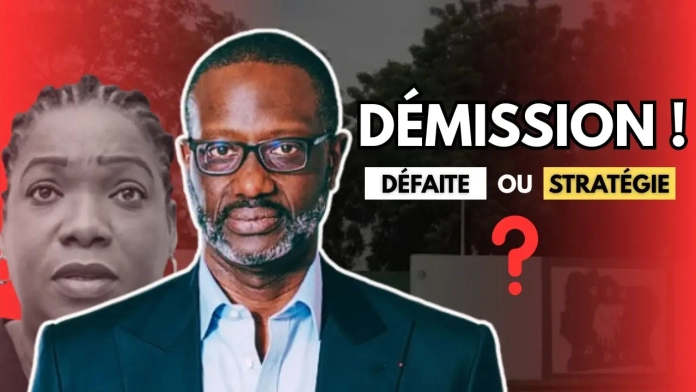On May 12, in a surprising announcement, Tidjane Thiam resigned as president of the PDCI-RDA, just days before a court ruling was expected regarding the validity of his election to the party’s leadership. While unexpected, the move appears to be part of a calculated strategy to preserve the party’s integrity in the face of looming legal uncertainty.
For several months, a legal challenge brought by Valérie Yapo—a party member and member of the PDCI’s political bureau—has questioned Thiam’s eligibility to lead the party. The case is based on Article 48 of the Ivorian Nationality Code, which states that any citizen automatically loses Ivorian nationality upon acquiring another.
The court found that Thiam, having failed to prove he was born French, had voluntarily acquired French nationality in adulthood. As a result, he would have lost his Ivorian nationality at that time, regaining it only in March 2025 after formally renouncing his French citizenship. This posed a major issue under PDCI regulations, which require the party’s president to be of Ivorian nationality.
A strategic resignation
Thiam’s resignation, announced through a statement released overnight, can be seen as a move to prevent the party from being placed under state oversight. By stepping down ahead of the May 15 court decision, he allows the PDCI to maintain leadership continuity, now ensured by the most senior vice-president serving in an interim capacity.
Had he stayed on and been suspended by the court, the party could have found itself without legitimate leadership, paving the way for a provisional administration under the authority of the Ministry of the Interior—a scenario party members and executives sought to avoid.
Yet despite resigning, Thiam could be re-elected as party leader during the extraordinary congress scheduled for May 14, just one day before the court’s decision. Having renounced his French nationality, he is once again exclusively Ivorian, which strengthens his legal standing. Still, other challenges remain.
One of the main objections is that Thiam may not meet the party’s requirement of at least ten years of prior service within its political bureau. This could become the focus of renewed disputes.
Another obstacle looms for the former minister: he is currently not registered to vote, which could seriously undermine any future presidential ambitions, regardless of his role within the party.
A political calculation at the heart of the strategy
The decision to hold a congress before the court’s ruling raises questions. If Thiam is re-elected on May 14 and the court invalidates his original election or imposes restrictions the next day, the party could be plunged into a fresh legal crisis. Nonetheless, the PDCI seems determined to keep Thiam at the helm, believing he enjoys strong grassroots support.
To some within the party, yielding to judicial pressure would amount to handing victory to their political opponents. In that light, avoiding a “plan B” is seen both as an act of political defiance and a calculated electoral strategy.


